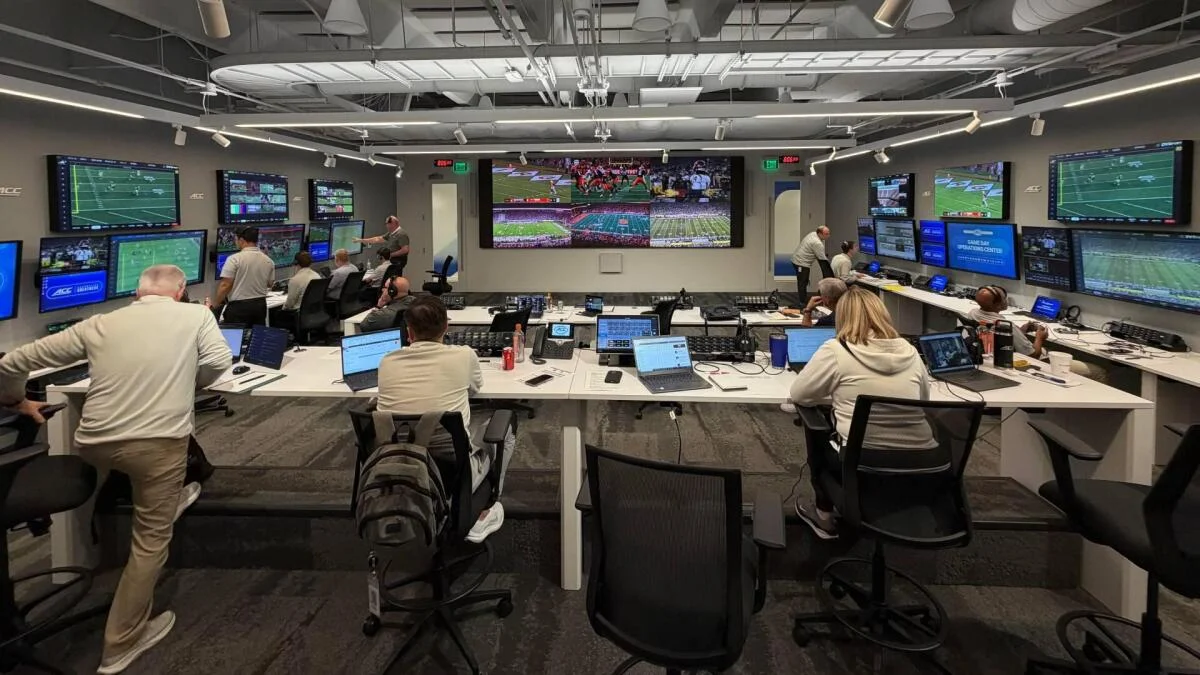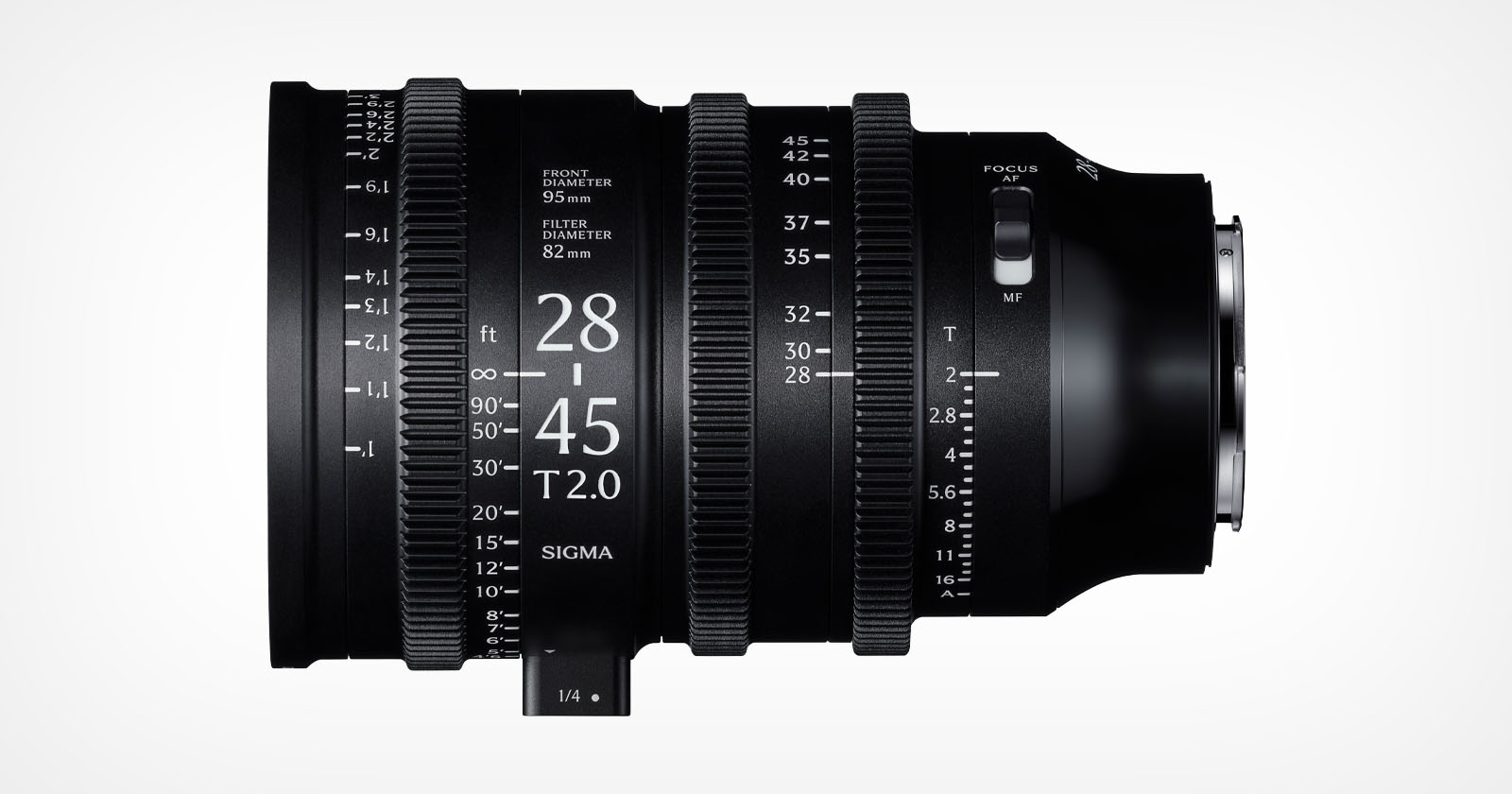Copyright CBS Sports

CHARLOTTE — Alberto Riveron is on the hunt for sugar. It's Friday night inside ACC headquarters in uptown Charlotte, and halftime of the first game in a rare doubleheader offers a brief reprieve -- and a chance for the conference's supervisor of football officials to grab a Cuban coffee and a second wind before the long night ahead. One problem: The sugar canister is empty. Riveron leans over the counter, tearing open packet after packet until a small white mound forms in a container for use later that night. How much coffee does this guy drink? "You'll see Saturday," he says with a grin. "Eight or nine shots, at least." Riveron, who worked 17 years in the NFL as an official and supervisor, is the point man inside the conference's Game Day Operations Center, located on the 12th floor of the Bank of America Tower. It's here that every reviewable play involving the ACC's 17 teams -- plus Notre Dame and UConn -- is reviewed by replay officials with the help of state-of-the-art technology developed by DVSport. This fall, the league and its broadcast partner, ESPN, rolled out a new initiative to provide a peek behind the scenes of its replay reviews. Now, select games include full access to the audio and video deliberations among the replay supervisor in Charlotte, the replay official at the game, and the on-field referee. The initiative has drawn rave reviews from fans and media alike, prompting the Big 12 to adopt a similar approach and provide audio access on reviews during its broadcasts midway through the season. "It shows America the due process," Riveron tells CBS Sports. "It shows Americans how we come to a decision. Pulling back the curtain on officiating is always a good thing. It shows everyone the preparation, the passion, the dedication and the ability to want to get it right. Just like the teams, we want to get it right. We need to get it right. This shows what we go through in order to get it right." Inside the operations center, 32 screens line two walls. At the front of the room, a 140-square-foot video board displays up to six games at once. Eight workstations, 33 screens, 24 communication lines — and a handful of replay officials obsessed with precision. Friday night includes two marquee games: Louisville at No. 2 Miami and Bill Belichick's North Carolina at Cal. By the end of the night, 10 plays are reviewed live on television. Six on-field rulings are upheld, and four are overturned. Even when plays aren't being reviewed, Riveron and replay supervisor Mark Bitar hover over the touchscreens, flicking through a dozen camera angles like air-traffic controllers. They're constantly rewinding big moments with re-tooled XBox controllers to ensure the game is officiated correctly. An on-field ruling of an interception early in the third quarter of the Louisville-Miami game is questionable at best, and is clearly an incomplete pass on the broadcast as the ball skips off the turf and into the arms of Miami's Jakobe Thomas. "I'm gonna overturn that," Bitar tells the room of 12 ACC workers, including an intern seated at the station, whose job is to chart plays on paper. Riveron calmly walks behind Bitar, and reminds him of the steps ahead. It may seem like an easy call, but there's work to be done. "OK," he says. "Let's go through the process." The most famous head in college football The man beside Riveron has developed a following of his own. Bitar's disembodied voice emanating from the Charlotte operations center is the one you hear most Fridays and Saturdays as officials review plays on ESPN and the ACC Network. Bitar, a New Jersey educator, has become the ACC's version of "Mr. Wilson" from Home Improvement -- his face hidden, his voice the unseen guide over every slow-motion replay. "Honestly, it's a little funny knowing that the back of my head gets more airtime than my face," Bitar tells CBS Sports. "With that said, it's also a reminder of how many people are tuned in and invested in every game. Replay is about getting things right for the players, coaches and fans, so if people recognize the back of my head, hopefully it means they trust the work we're doing behind the scenes." Bitar, usually in a tucked gray polo, rarely sits. Controller in hand, he flicks the gamepad like a professional gamer on Twitch, chasing perfection in every frame. He guides the game's replay official and on-field referee through a discussion of every reviewable play. Riveron, who watches and studies most games via the large videoboard in the front of the room, typically rises from his seat and walks to the replay station, where he quizzes and reminds Bitar of the processes outlined in the ACC's Replay Manual. Riveron calls it "The Process Bible." "I'm still teaching. I enjoy teaching. That's why I'm still here," says Riveron, 65. Bitar or Riveron begins most conversations with a simple question: "What's the ruling on the field?" After the review concludes and a ruling is reached, Bitar asks the officials at the game if they concur. Bitar began officiating football games at 19, starting with youth games involving third graders. "Not exactly the bright lights of college football," he says, "but it was the perfect place to learn and was highly enjoyable." He rose up the ranks, officiating high school football in New Jersey before stints in Division III and Division I college football. He met Riveron at officiating clinics and was hired as one of Riveron's replay assistants in the NFL. Bitar followed him to the ACC in 2023. "He was probably a little raw, but the hustle in that kid is just unbelievable," Riveron says. "The want-to, can-do, will-do attitude is beyond anybody I've ever seen. He's proven us right. He's hungry and he's one of the best in the country right now, if not the best." In many ways, the behind-the-scenes access shown every Saturday has humanized game officials, who are some of the most disliked and controversial figures in sports. Officials are rarely allowed to speak to the media, which leads to more criticism for the lack of transparency after making game-changing calls. "Once you get away from [process] is when you start making mistakes," Riveron says. "The few times we've made mistakes, I can go back and say we didn't follow the process. There are some judgment situations where you go back and say, 'You know what? We should have gone this way.' That happens. But the majority of the time it's because we don't follow that process. It's very important. I'm a process-oriented person. Maybe that's one of my OCD traits, I don't know, but I know it works in replay and it works in officiating." At 1:56 a.m. on Saturday, North Carolina is marching down the field and appears destined to take the lead at Cal. A beautiful throw on a crossing route in the red zone has Nathan Leacock in position to grab the lead, but the ball pops out of his hands and into the end zone for a touchback. Cal's Brent Austin recovers in the back corner of the end zone. The game is not stopped for a review, but Bitar and Riveron converse, rewatching the replay over and over again to make sure everything is above board -- from the fumble happening before crossing the goal line, to the ensuing recovery in the end zone (though the recovery doesn't matter since it was bounding out of bounds). "It's a good exercise," Riveron says. At 2:16 a.m., the headsets come off after Cal wraps up a 21-18 win. "Thank you, everyone," Riveron tells the room. In less than nine hours, the crew will return for a 16-hour workday that includes seven more games and plenty of Cuban coffee. Slow it down Saturday's early window opens with two games. Just minutes into Georgia Tech-Duke, the first replay review hits. A runner loses the ball, or so it seems. The officials rule his forward progress was stopped, and the Charlotte crew, live on ESPN, backs them up. "It's a learning experience every time you listen to it because it's nice and methodical and controlled as far as how they discuss these situations," ESPN broadcaster Louis Riddick remarks after the ruling. "We've learned a lot ourselves just listening to them go through it." Back in Charlotte, Riveron's voice booms. "Methodical," he repeats. "That's the process. If we can do it, we're doing it well." Riveron was born in Cuba and emigrated with his mother to the United States in 1963 when he was five years old. He grew up in Miami, where he still lives, and started officiating football games in 1977. He started reffing college games in 1990 and was hired as a side judge in the NFL in 2004, becoming the first Hispanic to officiate in the league. He served as a crew chief referee for five years before he was elevated to the NFL's senior director of officiating and later to the senior vice president of officiating. As the afternoon games wind down, Riveron starts editing cut-ups of plays he'll use to teach and inform ACC officials and coaches the next day. He's referring to a fair-catch call in the Miami game, where Malachi Toney ever so slightly waves his arm side to side below his waistband before sprinting ahead after the catch -- a subtle move, but still technically a fair-catch call that was correctly identified by on-field officials. These are the moments that test officials most. In real time, it's easy to miss calls as 22 bodies fly past you at 20 mph. It is easy to criticize in retrospect, but still difficult to identify in the moment. The best officials learn to slow the game down and find stillness amid the chaos, Riveron says. They grow accustomed to the speed and tendencies of quarterbacks and runners, picking up on body language to boost their confidence as they study the field. Officials, like coaches, study hours of film before officiating a game. The process reminds Riveron of a car accident he suffered years ago, when a drunk driver, he says, ran through a stop sign and hit the back side of his vehicle, sending it spinning across the intersection. In a recollection that sounds similar to those who say they see their life flash before their eyes during traumatizing events, Riveron said time slowed as the car spun. He spotted a tree out of the corner of his eye and immediately thought: "I hope the car spins enough that it hits the other side." His son, Austin, wanted to ride with him to the store, but he told him to stay home and clean the cage housing their pet rabbit, Fluffy. If he had joined his father, the tree would have hit the passenger side of the car. "I still get goosebumps," Riveron says, lifting his left arm. Riveron escaped with only bruises. He called his NFL boss, Mike Pereira, that Thursday and said he'd be ready to work Sunday. "Officials," he says with a laugh. "We're crazy like that." Crazy? Possibly. A life lesson for an NFL official? Sure. "I also thought, I hope slowing this down is also something I can take to the field." The impetus for transparency Two controversial finishes in Miami victories in 2024 spurred the ACC to make changes, allowing ESPN unprecedented access to their replay reviews this season. If fans are confused, the ACC figured, why not let them listen in? ACC Network executive Jeremy Michiaels described the ACC's decision as a "calculated risk to be innovative with the television audience" in an interview earlier this year with The Virginian-Pilot. "We really have nothing to hide," said ACC football executive Michael Strickland. The ACC began allowing cameras in the replay center in 2023, but without audio. Since then, the United Football League has allowed video and audio access on replay reviews to broadcast partners. Riveron said the NFL was contemplating a similar experiment before the pandemic shut everything down in 2020. "People understand coaches are human; they're going to make mistakes," Riveron said. "Players are players; they're going to make mistakes; and we're going to make mistakes, too. But now they can see the process. That's important. When people realize there's a due process, and we follow that process to reach a decision, that's the most important thing. As long as coaches coach, players play and officials officiate, there's going to be mistakes in the game. It's a human element." In the end, there's always controversy On Saturday, 15 plays were reviewed across seven games. But as the clock hit midnight on the West Coast, tension spiked as Florida State and Stanford traded blows. In a 37-minute span, four reviews were initiated. Among those was a critical third-down catch to convert a first down for the Seminoles, and a targeting call on a 35-yard run by FSU quarterback Tommy Castellanos. Both on-field rulings were upheld after review. This one wasn't part of ESPN's "mic'd up" slate, meaning no live audio from Charlotte. Fans could only guess what Bitar and Riveron were seeing and saying. The television broadcast suffered technical difficulties, including digital artifacts appearing on the feed. Camera angles were also limited. The ACC's biggest replay review came on the weekend's final play. At 2:14 a.m. ET, FSU's Gavin Sawchuk lunged for the goal line and was ruled inches short. FSU trailed 20-13. A touchdown could tie or win the game for the Seminoles, and alleviate the hot-seat chatter surrounding coach Mike Norvell, who entered Saturday on an eight-game losing streak in the ACC. "The game is not over," an on-field official announced twice over the public-address system In Charlotte, Bitar cycles through cameras to identify the two best angles for the review: a handheld camera near the goal line and an overhead camera stationed at the 50-yard line, which was zoomed in on the play. Bitar scrubs the play again and again: Sawchuk leaning to his right side, stretching his arms and the ball inching toward the goal line as the frame freezes mid-fall. Biltar pinpoints the moment Sawchuk's shin hits the turf, and then freezes on the last possible frame when Sawchuk's legs are still upright. "Identify where the ball is," he directs replay official at the game. "... I'm trying to be able to identify whether or not this ball is crossing the line, and based off the 50-yard line and near handheld. So, what do you think about this one with the 50-yard line and the near handheld?" There was one problem: the handheld camera's view of the ball was impeded by a player. "I'm not exactly sure where the ball is at this point," Bitar communicated to the replay official and referee. "Right?" Silence. The officials at the game answered Bitar's question. "I agree with you. Ruling on the field is upheld," Bitar said. "The ruling on the field is upheld." It's 2:17 a.m. ET, and in a few seconds, Stanford fans will hear the news and explode in celebration. Riveron nods in Charlotte. The process, once again, has the final word. "Thank you, everyone," Riveron tells his crew.. Head official Darryl DeBerry turns on his microphone in Stanford. "After further review, the ruling on the field of the runner being short of the goal line is upheld. That's ball game." The replay officials in Charlotte look to their screens, staring at the scene unfolding in Stanford. Stunned? Relieved? "Please don't storm the field," Strickland mutters from the back of the room. On cue, Stanford students storm the field. "There's a certain judgment at the end of the day involved in mostly everything we do," Riveron said before Saturday's games. "But we can control how the process is laid out. If people sit down for two games today, we have six reviews, and we do every review the same way and follow the process, we win." In Charlotte, the room exhales after a 16-hour day at ACC HQ. Screens fade to black. Another night, another judgment, another reminder of what Riveron preaches most: Follow the process and live with the rest.



